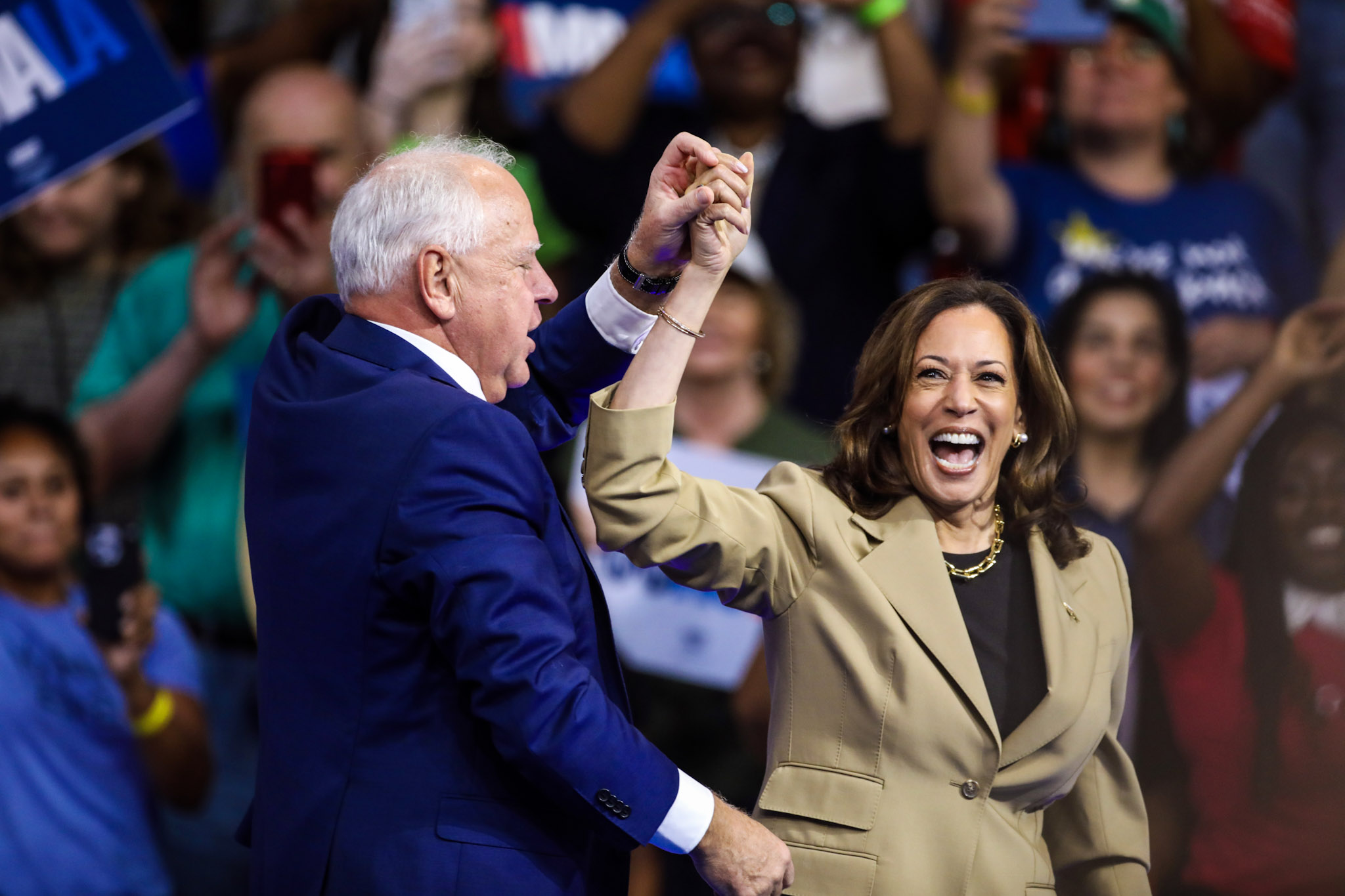Indianz.Com > News > ‘Supercharged’ for Indian Country: Kamala Harris and Tim Walz wrap up big first week

A ‘supercharged’ agenda for Indian Country
Kamala Harris and Tim Walz wrap up first week on presidential trail
Monday, August 12, 2024
Indianz.Com
Democratic presidential candidate Kamala Harris and her running mate Tim Walz wrapped up a whirlwind week of rallies, making history with the first campaign event opened by a tribal leader.
Speaking on Saturday, Harris singled out the tribal leaders in the massive audience at the Desert Diamond Arena in Arizona. During remarks carried live by news stations across the nation, she uttered words that aren’t heard too often by Indian Country on the presidential trail, especially not at this stage in the race.
“As president, I will tell you, I will always honor tribal sovereignty and respect tribal self-determination and fight for a future where every Native person can realize their aspirations and every Native community is a place of opportunity,” Harris, currently serving as Vice President of the United States, said to thunderous applause at the facility whose naming rights are owned by the Tohono O’odham Nation, which operates the Desert Diamond Casino right across the street.
Related Stories
Search
Filed Under
Tags
More Headlines
Montana Free Press: Bill addresses law enforcement on Flathead Reservation
Cronkite News: Republicans in Congress push for health care cuts
Native America Calling: Native Playlist with Morgan Toney, Tanaya Winder and The Reztones
KFF Health News: Medicaid cuts ‘a tremendous hit’ to Indian Country
Arizona Mirror: Trump administration removes Native contributions from Defense website
‘A historic victory’: Spirit Lake Nation reclaims land taken by federal government
Cronkite News: Democratic lawmaker Raúl Grijalva passes on at age of 77
Native America Calling: Native women who made history
Arizona Mirror: Bipartisan bill provides $5.1 billion for tribal water settlement
Cronkite News: Navajo Code Talker blasts removal of content from U.S. military sites as ‘racist’
Native America Calling: Higher education for Native students at a crossroads
Press Release: Senate Committee on Indian Affairs announces Republican majority staff
MSU News: American Indian Council hosts 49th annual powwow
People’s World: Indigenous coalition celebrates release of Leonard Peltier
National Congress of American Indians ‘deeply concerned’ about removal of Native content from U.S. military sites
More Headlines
Cronkite News: Republicans in Congress push for health care cuts
Native America Calling: Native Playlist with Morgan Toney, Tanaya Winder and The Reztones
KFF Health News: Medicaid cuts ‘a tremendous hit’ to Indian Country
Arizona Mirror: Trump administration removes Native contributions from Defense website
‘A historic victory’: Spirit Lake Nation reclaims land taken by federal government
Cronkite News: Democratic lawmaker Raúl Grijalva passes on at age of 77
Native America Calling: Native women who made history
Arizona Mirror: Bipartisan bill provides $5.1 billion for tribal water settlement
Cronkite News: Navajo Code Talker blasts removal of content from U.S. military sites as ‘racist’
Native America Calling: Higher education for Native students at a crossroads
Press Release: Senate Committee on Indian Affairs announces Republican majority staff
MSU News: American Indian Council hosts 49th annual powwow
People’s World: Indigenous coalition celebrates release of Leonard Peltier
National Congress of American Indians ‘deeply concerned’ about removal of Native content from U.S. military sites
More Headlines


